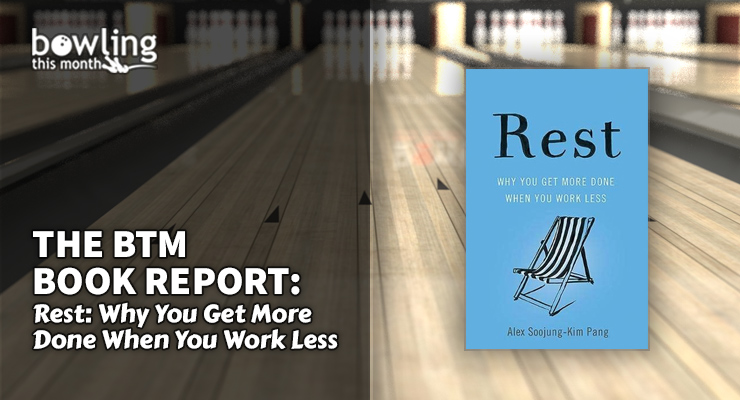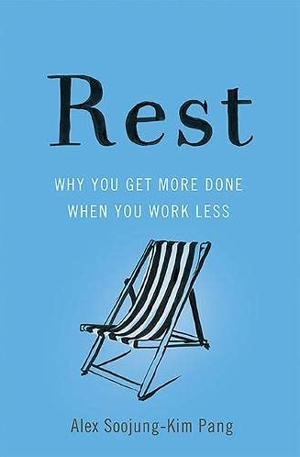| About the Book | |
|---|---|
| Title: | Rest: Why You Get More Done When You Work Less |
| Author: | Alex Soojung-Kim Pang |
| Length: | 320 pages (hardcover) |
| Publisher: | Basic Books |
| Copyright Year: | 2016 |
Alex Soojung-Kim Pang’s Rest is mostly a book arguing in favor of a reduced workload as a means to higher productivity. Through a series of examples and arguments, Pang makes the case that rest isn’t the opposite of work, but rather that it is the other side of the same coin. Appropriate rest makes work easier, and without work, rest would be meaningless. Within the book, there are plenty of examples and conclusions that apply to the business world, but there are also a few key pieces of information that can and should be applied to sports and high performance.
The first is an expansion from Malcolm Gladwell’s “10,000 hours of deliberate practice” maxim, originally published in Outliers. That book refers to research done by Karl Anders Ericsson (and others) which detailed the amount of practice needed to become a top-level violinist. Pang notes that, aside from the increased deliberate practice found in the highest performing musicians, there was also a significant increase in the amount of rest. On average, top performers slept over an hour more per day than their counterparts, thanks in large part to daytime naps and extra sleep at night. By Pang’s math, becoming elite requires 10,000 hours of deliberate practice, as well as 12,500 hours of deliberate rest and 30,000 hours of sleep.
Another important area is the subject of routine. Using an example of the importance that chefs and line cooks put on their “mise en place” before starting service, Pang illustrates how a preparatory routine is vital to both a problem-solving and creative mindset. Using an effective routine in the morning will make work days more productive. Using an effective routine and being properly organized make the surgeon more capable of adapting to whatever situation he or she confronts.
Finally, Pang also introduces Graham Wallas’ four stages of problem-solving from his book, Art of Thought: preparation, incubation, illumination, and verification.
Pang agrees with Wallas’ original assessment that the incubation and illumination periods come from rest periods when the subconscious is free to work ...
Already a premium member? Click here to log in.



